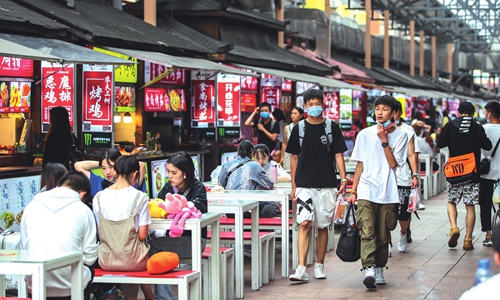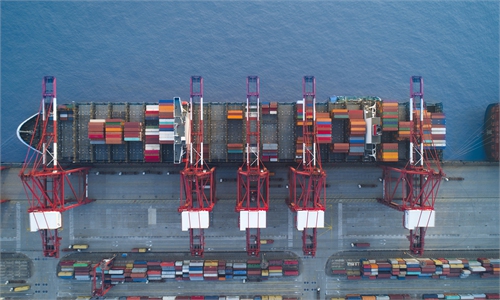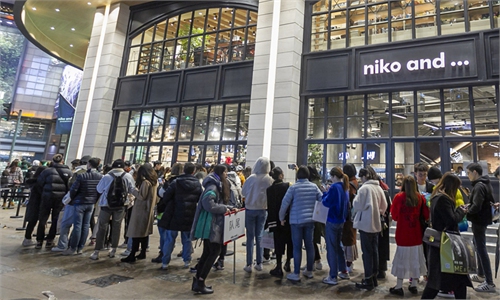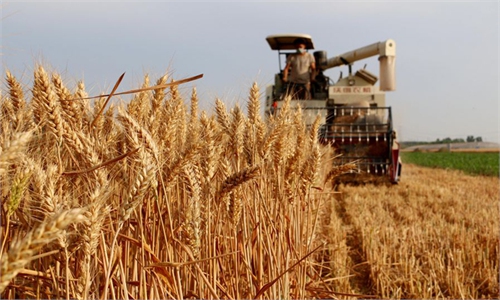
Residents enjoy food at Guiyang, Southwest China's Guizhou Province on Friday. China will work to improve the consumption of domestic residents and support the recovery and development of the consumer service sectors, according to a government work report submitted to the national legislature for deliberation on Friday. Photo:cnsphoto
China's new tightening pandemic restrictions to ensure a safer Spring Festival, which falls on February 11, will likely spur the e-commerce sector, but the new COVID-19 cases are unlikely to affect domestic consumption in the same way as last Spring Festival, the country's economists suggested on Monday.
The restrictive measures will change holiday consumption pattern if China's 200 million strong migrant workers choose not to travel during this year's Spring Festival, but the overall consumption will not be severely impacted, as China is now well prepared to contain new cases after one year fighting the pandemic, they said.
China's National Health Commission on Saturday suggested people to stay in their working city during the Spring Festival and try to buy goods online to avoid spread of the virus as winter eases the virus. Many cities including Beijing and Shanghai, have released similar notifications.
Online grocery shopping was particularly liked during last Spring Festival, when the COVID-19 lockdown disrupted supply chains and spurred online orders. According to a report by bjnews.com, Dingdong Fresh, a fresh produce platform, received nearly 4 million orders during the seven-day holiday, but the company struggled to meet demand.
The stricter restrictions this year will not have hugely negative impact on holiday economy as the demand would remain basically the same, and China have accumulated rich experience in fighting the virus, Liu Xuezhi, an economist at the Bank of Communications told the Global Times on Monday.
However, if a large portion of people who used to travel during the holidays stay in where they are working - mainly medium and large-size cities, the consumption pattern in these cities, which were normally "empty" during holidays, will see a change as daily goods could boost compared with the past, Liu said.
Under the new restrictions, people who usually shop at markets or malls will more likely go online, which could see an obvious boost in e-commerce that have already seen a business boom during the pandemic in 2020, according to Liu.
Cao Heping, an economist at Peking University told the Global Times that festival consumption at second- and third-tier cities in China might take a hit during this year's Spring Festival for a shortfall of visitors from bigger cities.
"As required by the regulators, big festive gatherings and activities like traditional temple fairs are now canceled," Cao said, "it can bring significant pressure to smaller businesses and vendors in smaller cities."
However, Cao said that most Chinese cities have not announced a total lockdown, so the number of people who chose to stay in big cities during the Spring Festival might be limited.
Under the circumstance, many Chinese courier companies including SF and YTO, who partially have suffered operation suspension last year, have started to prepare for the upcoming holiday, and reaffirmed that they will keep operating during the festival time.
Meanwhile, many super markets including Wumart in Beijing are preparing inventory.
"Since people are encouraged not to travel wildly, we expect the supply of food will grow by 30 percent year-on-year during the festival," a source from Wumart, a supermarket chains in China, told the Global Times on Monday.
Global Times



